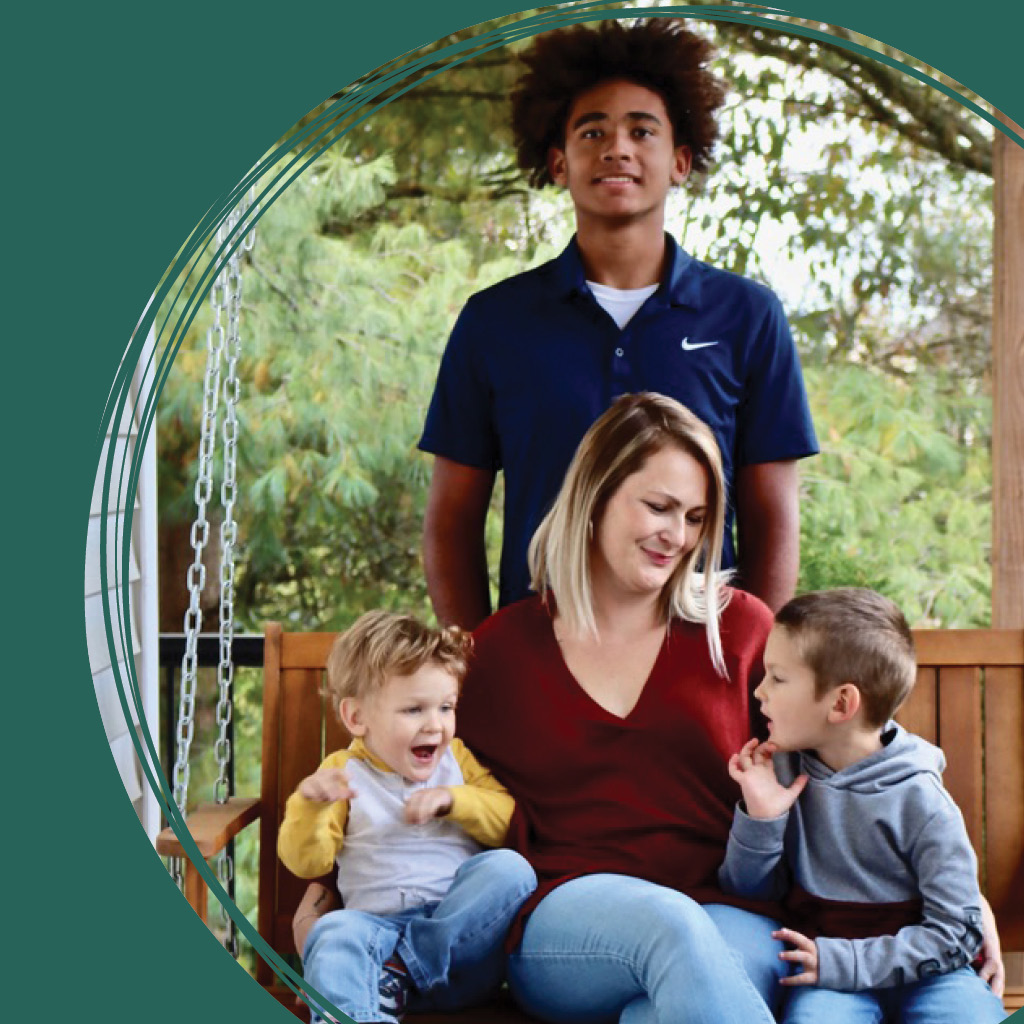Over the course of the winter, I’ve been writing to you about living in your presence and making decisions from your integrity. In these blogs, I’ve taken you back to your own heart repeatedly. It’s warm there darling; warm and knowing. As we’ve shifted out of the darkened days of Winter and into the blossoms of Spring, have you been getting brighter too? I hope so. Alongside the brilliant bell hooks, I believe that the purpose of life is to stay as close to love as possible. In my writing, I’ve shared practices that I’ve built for over a decade so that I may live a life that always returns me to my loving presence. It is my deep intention that these practices are walking you home to the loving being that you are.
In writing about walking ourselves home to love, I haven’t written much about the negative emotions that wash over us lately. I also haven’t written about how this type of living can radically change how you show up in your family during challenging times. I don’t know about you but the most important thing to me is that our home is a place where my children and I always belong. First to ourselves, then to each other. Choosing to live this way with my children means I always have to check in with my integrity before, during, and after big emotions and tough moments. This past weekend, we talked about dysregulation. We leaned against each other, eating pizza still warm from the oven, and I told my little sons, “Babies, D is for Dysregulated.” We’d had a day.
My Outdated Narrative Ends With Me
In the early days of parenting, I carried the outdated narrative I was raised with that how “good” your children were, was a reflection of how good you were. Obedience culture anyone? I wasn’t raised during the times when children were to be seen and not heard. But I was raised in a culture where how children behaved and what they achieved was a direct reflection of their parents. Looking back I don’t know how much of this came from my dysfunctional extended family or how much came from my parents. Knowing what I know now, I’m guessing a lot of it was pressure from my former extended family who value how they look over who they are. Either way, when I became a mama, even though I wanted to raise my children differently, I still had this shame narrative during tantrums and moments of dysregulation. Why couldn’t I get my children to listen? Where was I failing? The answers darlings are nowhere to be found in the narrative that was modeled to me as a child.
As the years of parenting passed, my divorce was finalized, and my home became the loving place I always knew it could be, I began to dig deeper into this narrative. When my children had tantrums, wouldn’t listen, and had days where tears came more readily than smiles I felt as though I couldn’t find my integrity. Not in the narrative that my children just needed to listen; to be good. I also couldn’t find my peace in yelling, yes I know I’m human and will have moments, but I couldn’t shake my gut reaction of, “This is not the way.” When I sat in the discomfort of my own feelings surrounding my children’s dysregulated behavior I was able to understand what was happening at a deeper level.
The first piece I came to understand was what I’ve already written about; that I was bringing my own upbringing into my parenting. In the moments I felt I wasn’t a good parent I began the gentle work of, “I’m not a good or bad mama, I am their mama and that is enough.” This little sentence allowed me to lift the shame of tough moments and lean into my own heart. I know that my heart is my sturdy leader and if I’m leading from my heart as their mama that is always enough. The second piece I came to understand was both through my own clinical experience and the amazing work of Dr. Becky alongside Brene Brown. The second piece is this; we are ‘feeling beings’ that sometimes use logic but always behave. As humans our feelings wash over us quickly, sometimes our mind gears up to help us, and behavior always comes with our feelings. If you look at it through this lens you can come to understand that in small children there is most likely never that middle step. They feel they react. Our little nuggets are all limbic systems at least through kindergarten.
Little Children, Big Emotions
Knowing this, that our little children aren’t seeking to “be bad,” but instead are responding to the emotions inside of their little hearts allows for deep compassion. I don’t know about you, but if I was never able to use my logic and instead act only on my feelings I would look insane at 36. I was a little girl with big feelings who grew up to become a woman with bigger feelings. With this mindset that big feelings are a natural part of childhood, I’ve come to see them as something I need to allow. Now please don’t get me wrong, I still have strong boundaries for my children that always start with, “It’s my job to keep your body safe and brother’s body safe.” That means when big feelings come we’re not going to take them out on anyone else including hurtful words. What we are going to do is to allow them to wash over us like a wave in the ocean and ride them with mama until we’re calm. Even if this means I’m taking box breaths, sitting on a pillow, while my little sons wail until they are calm. Afterward, we can talk about what happened as we soothe from their waves.
As we munched our pizza I told my boys, “Babies, dysregulated means we have felt so big that we either don’t have words to say so we use our bodies, or the words we say aren’t kind. Dysregulated doesn’t mean we aren’t kind, it’s a message from our body that we need help.” I don’t know if it landed, but I’m going to keep talking to them and normalizing their big feelings. I am also going to continue to do the incredibly hard work of not slipping into yelling or instant punishment when shit hits the fan with my little humans. Instead, I will stay calm, breathe, and offer them the kindness they need to ride their waves and know emotions aren’t scary; they just need to be felt and listened to.
Xoxo,
Jessie Cooper


